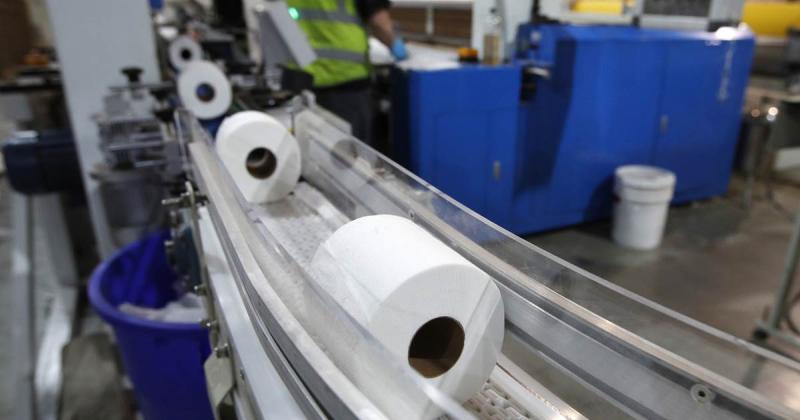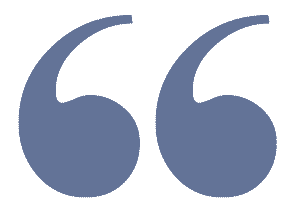Americans coping with coronavirus are clogging toilets with wipes and T-shirts



"Toilets are not trash cans," the EPA is warning as a shortage of toilet paper leads to desperate measures. Toilet paper moves out from a cutting machine at the Tissue Plus factory in Bangor, Maine, on March 18, 2020. Robert F. Bukaty / AP
Breaking News Emails
Get breaking news alerts and special reports. The news and stories that matter, delivered weekday mornings. SUBSCRIBE March 25, 2020, 11:00 PM UTC By Corky Siemaszko
The all-caps message on the new sign that went up in Redding, California, after the coronavirus came to town could not be any clearer: ONLY FLUSH TOILET PAPER.
It made its debut last week on the corner of Smile Place and Russell Street after a desperate soul clogged one of the city’s sewer lines by wiping with pieces of shredded T-shirt — and flushing them down the toilet, the city confirmed.
Quick work by members of the city’s Department of Public Works averted what could have been a smelly disaster, officials there said.
The City of Redding has put up signs warning residents not to flush anything that isn't toilet paper. Courtesy City of Redding
“The sewer line that had plugged up last week was not substantially different than any other sewer blockage from people flushing products that they aren’t supposed to, just that it was during the toilet paper shortage and was intentionally flushed in lieu of traditional toilet paper,” Ryan Bailey, assistant director of public works, said in an email to NBC News. “The item was specifically cut T-shirts.”
What happened in Redding is not an anomaly.
There have been reports of sewage systems and toilets clogging across the country as Americans faced with a shortage of toilet paper have resorted to using baby wipes, paper towels, napkins and tissues — and flushing them away.
Washington has taken notice.
"Toilets are not trash cans," the Environmental Protection Agency said in a tweet posted Monday.
Let our news meet your inbox. The news and stories that matters, delivered weekday mornings. Sign Up
This site is protected by recaptcha Privacy Policy | Terms of Service
Toilets are not trash cans. Please remember napkins, paper towels, and so called "flushable" wipes can all clog your pipes. https://t.co/IqtuQXUHeP #WipesClogPipes pic.twitter.com/fK3KDeDq5s
— U.S. EPA Water (@EPAwater) March 24, 2020
Roto-Rooter, one of the nation’s biggest plumbing service providers, has sent out an email to its many customers spelling out the “flushing rules.”
“If you're all out of toilet paper, there's no perfect solution, but you should never flush paper towels and napkins,” the rules state. “They don't dissolve quickly in water and are likely to cause your toilet to back up. Facial tissue is another bad idea, but in the absence of toilet paper, you can use it in small amounts if you flush frequently.”
In South Florida, the Miami-Dade Water and Sewer Department urged residents to bag dirty wipes instead and throw them out with the trash.
“This increase in the use of cleaning wipes is only exacerbating a problem we deal with on a daily basis,” Jennifer Messemer-Skold told the Miami Herald.
The county already removes 300 tons of wipes from its sewer system every month, the paper reported.
And in Chicago, retired plumber Craig Campeglia told the Chicago Tribune that he expects the phones of sewer drain experts will be ringing off the hook once the shelter-at-home rules start easing up.
“This is a crazy time,” Campeglia said. “I don’t know why people are hoarding toilet paper. But I do know the only thing that should go down a toilet is sh--, pi-- and toilet paper. Anything else, put it in a bag, seal it up and toss it in the garbage. That’s what it’s for.”
In New York City, the owner of Queens-based Johnny Drain Cleaning said they were routinely cleaning out sewage lines clogged with “tissues and wipes and other stuff” even before this crisis.
“But for some reason, lately, the lines are being clogged by people using too much toilet paper,” said the owner, who goes by Johnny Drain. “I don’t get it.”
“Drain is my stage name,” he added with a chuckle. And his business is located in, of course, the Flushing neighborhood of Queens.
There has also been a run on disinfectant wipes, the result of well-meaning homeowners who have been following the recommendations of public health officials and sterilizing often-touched surfaces such as faucets, doorknobs and countertops, industry experts said.
Those disinfectant wipes, all too often, also wind up in the toilet, Bailey from Redding, California, said.
“Nonflushable products have always been a problem in sewer systems,” he said. “We spend a lot of time and money every year trying to educate people about the problem with flushing anything down the toilet other than traditional toilet paper. In recent years, there has been an increased market for ‘flushable’ wipes and other products, none of which are designed to break down during the treatment process.”
But the current crisis has forced Redding officials to take extra measures.
They have started distributing door hangers that say “Think Before You Flush” and list what can or can’t be flushed down the can.
And that sign?
“The sign was initially located in the neighborhood of the incident,” Bailey said. “We have since moved it around town.”
Corky Siemaszko
Corky Siemaszko is a senior writer for NBC News Digital.
About Contact Careers Coupons Privacy policy Do Not Sell My Personal Information Terms of Service NBCNews.COM Site Map Advertise AdChoices
© 2020 NBC UNIVERSAL
